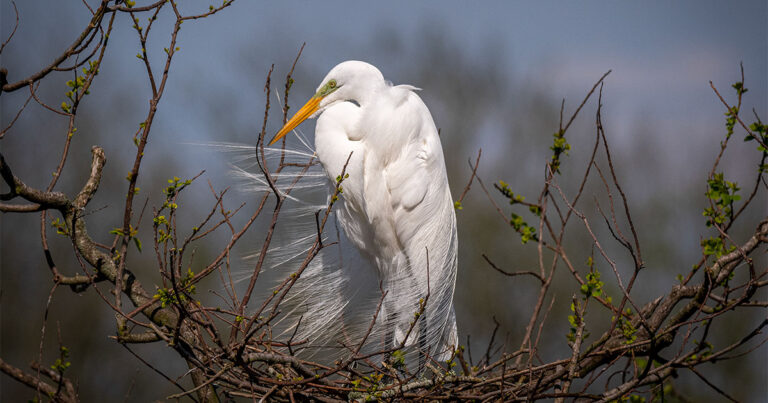In English, the idiom “for the birds” disparagingly alerts one thing is nugatory. However as world leaders collect for COP28, the UN’s annual local weather convention, they are going to be overlooking a essential piece of the answer to world warming if they don’t seem to be performing for the birds.
What our work with companions throughout the Western Hemisphere is displaying is that defending birds and the locations they want additionally secures the well-being of individuals and the planet.
Birds are dying at an alarming fee from habitat loss and our warming local weather. There are 3 billion fewer birds on this planet now than there have been in 1970. That is the canary within the coal mine of right now; the well being of birds signifies the well being of ecosystems. Which means the lack of birds forecasts better losses to return.
For too lengthy we’ve got considered local weather change and biodiversity loss as totally different issues. Whereas COP28 is for local weather, subsequent October COP16 will handle biodiversity.
Separating the local weather disaster from biodiversity loss is shortsighted—these crises are two sides of the identical coin. They have to be addressed collectively if we’re severe about sustainable options that handle the well being of individuals and our planet.
Local weather change is destroying habitats, and when ecosystems are disrupted, people suffer too. Meals and water have gotten extra scarce, infectious ailments have gotten extra rampant, and pure sources for current medicines and new pharmacological discoveries are being misplaced.
Once we destroy hen habitat we lose biodiversity, and we additionally lose essential carbon-reducing advantages these ecosystems present to fight local weather change. That’s as a result of most of the landscapes which might be key habitats for birds are additionally pure carbon sinks—substantial carbon is saved in wetlands, forests, grasslands, and even inexperienced areas in cities.
By specializing in nature-based climate solutions we are able to sort out each local weather change and biodiversity loss, however provided that we handle these challenges on the similar time and acknowledge how interconnected they’re to at least one different.
That’s what the Nationwide Audubon Society is targeted on at COP28. We’re bringing deep scientific information and confirmed outcomes of nature-based local weather options to make sure biodiversity loss has a seat on the desk.
By defending and restoring nature, we are able to obtain one-third of the emissions reductions the world wants and assist the well being of individuals, vegetation, and animals. But lower than 10 p.c of local weather funding is at the moment allotted to nature-based options. The mathematics is evident: world leaders should right-size this discrepancy.
The stakes couldn’t be larger. If we fail to cut back emissions and sluggish world temperature rise, two-thirds of North American birds face extinction. We should take heed to what birds are telling us. We’re turning away from coal-fired energy vegetation, however the canary nonetheless is just not secure.
Nature-based local weather options are, after all, one piece within the world decarbonization puzzle. To unravel local weather change, we should additionally transition our economies to scrub vitality as shortly as doable. At COP28, Audubon can be supporting responsible clean energy siting and transmission line expansion that minimizes hurt to wildlife and helps native communities.
We’re already making progress to halt and reverse nature loss. Simply final 12 months, world policymakers pledged to guard biodiversity and preserve 30 p.c of land, water, and seas by 2030. Importantly, this doesn’t simply imply huge oceans and landscapes. It consists of the identical rivers, lakes, forests, coasts, and parks all of us get pleasure from. However we’ve got rather more to do.
COP28 is the subsequent check for world leaders. There’s a lot to do, however one factor we all know for positive is that specializing in biodiversity loss and nature-based local weather options along with different decarbonization options is important. Lengthy gone are the times once we can handle world challenges individually; the time is now to acknowledge how interconnected our planet’s challenges are and act accordingly.

